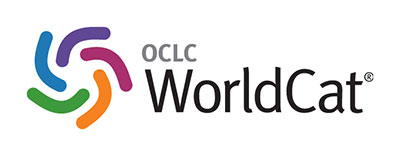BUSINESS INTELLIGENCE PROTOTYPE FOR OUTPATIENT OF THE HUMANITARIAN HOSPITAL
DOI:
https://doi.org/10.26871/killkanatecnica.v6i2.941Abstract
This article explains the implementation of a Business Intelligence system to manage the productivity indicator of the outpatient area of the Pablo Jaramillo Humanitarian Hospital, which is part of a corporate group of companies.
The productivity indicator refers to the number of patients seen in consultation in a period of time, by specialty and doctor.
Currently the indicator is generated manually and only when the month ends and for this a flat report is requested that has to be tabulated in spreadsheets. To solve this problem, a Business Intelligence system was created that daily and automatically updates the information required to feed this indicator and is presented in a specialized tool for BI with information cut off the previous day.
The implementation was carried out using its own methodology and the official tools of the group were used.
After implementation, the results and benefits they represent for the hospital are validated, both in terms of delivery time and in resources used prior to and after implementation.
The main benefits are: the elimination of the time required to obtain the indicator results, the rapid analysis of the indicators and the great variety of information obtained from a single dashboard.
Downloads
References
Mora, G. (2018). Siglo XXI economía de la información: gestión del conocimiento y Business Intelligence, el camino a seguir hacia la competitividad. SIGNOS - Investigación en sistemas de gestión, 10(2), 161–174. https://doi.org/10.15332/s2145-1389.2018.0002.09
Dedić, N., & Stanier, C. (2017). Measuring the success of changes to Business Intelligence solutions to improve Business Intelligence reporting. Journal of Management Analytics, 4(2), 130–144. https://doi.org/10.1080/23270012.2017.1299048
Rodríguez, J. M. R. (2014). Cómo hacer inteligente su negocio. Grupo Editorial Patria.
Montejo, Y. C., & Sousa, H. P. (2021). Gestión documental, Gestión de información y Gestión del conocimiento: nociones e interrelaciones. Bibliotecas. Anales de investigación, 222-227.
Datos, información, conocimiento. (s. f.). Sinergia. Recuperado 6 de febrero de 2022, de https://www.sinnexus.com/business_intelligence/piramide_negocio.aspx
Kimball, R. y Ross, M. (2019). El kit de herramientas del almacén de datos: la guía definitiva para el modelado dimensional, ed. Wiley.
Rodríguez, A., & Bernal, E. (2019). Gestión de la información cuantitativa en las universidades, Pistas para su abordaje en la era de la sobreinformación. Bogotá DC: Universidad Nacional de Colombia.
Hernández Mejía, S. (2019). Comparativo de metodologías y herramientas para el desarrollo de un data warehouse.
Mettler, T., & Vimarlund, V. (2009). Understanding business intelligence in the context of healthcare. Health Informatics Journal, 15(3), 254–264. https://doi.org/10.1177/1460458209337446
Arnaudo, M. F., Lago, F. P., & Bandoni, J. A. (2020). Toma de decisiones en el sistema de salud: aportes interdisciplinarios desde la Economía de la Salud y la Ingeniería de Sistemas de Procesos. Ensayos de Economía, 30(56), 136–150. https://doi.org/10.15446/ede.v30n56.78681
Palacios-Tapia, J. A., Medina, E. H., Ochoa-Crespo, J. D., & Torres-Palacios, M. M. (2020). Business Intelligence aplicado al sector Salud. Revista Arbitrada Interdisciplinaria Koinonía, 5(3), 622. https://doi.org/10.35381/r.k.v5i3.914
Bernabeu, D. (2008, 4 agosto). II HEFESTO: Metodologia para la Construcción de un Data Warehouse | Dataprix TI. dataprix.com. Recuperado 6 de febrero de 2022, de https://www.dataprix.com/es/data-warehousing-y-metodologia-hefesto/ii-hefesto-metodologia-construccion-un-data-warehouse










